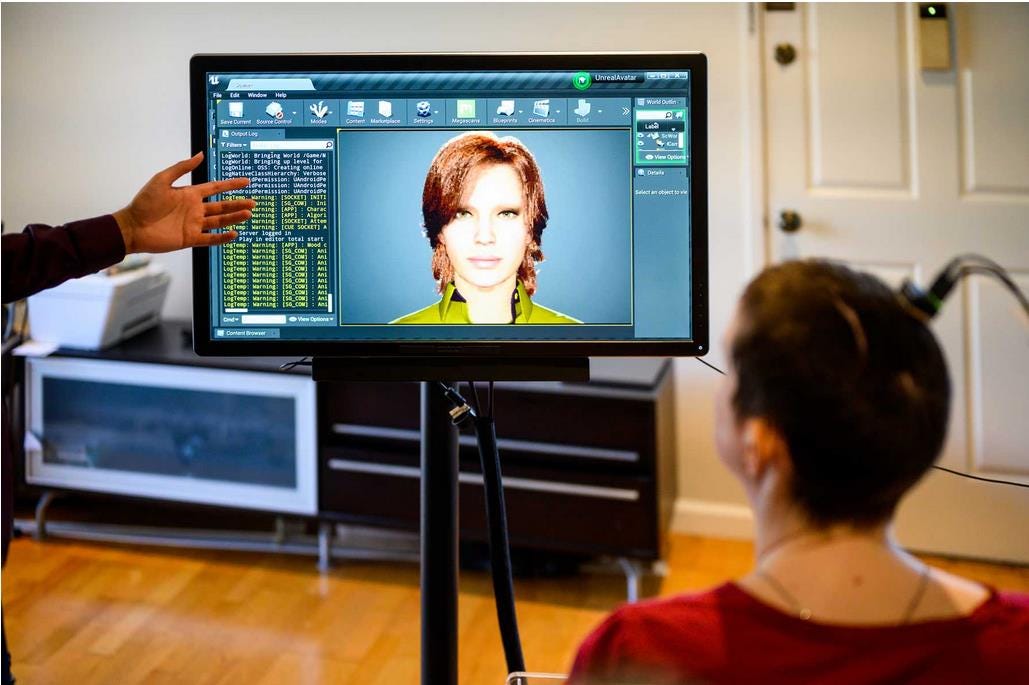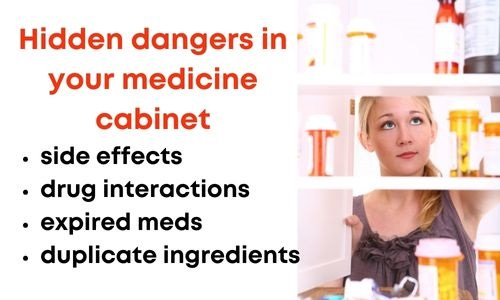September 3, 2023: New generics for ADHD and MS; Narx score; video of brain-to-voice technology for ALS and stroke patients; 10 major drugs earmarked for cost cuts; safety tips for OTC meds; new poll
New Generics Approved
The U.S. Food and Drug Administration (FDA) approved the first generic versions of Takeda’s Vyvanse (lisdexamfetamine dimesylate) capsules and chewable tablets to treat attention-deficit/hyperactivity disorder (ADHD) in patients six years and older and moderate to severe binge-eating disorder in adults. Approvals have been given to 15 different manufacturers, including Mylan, Actavis, Rhodes, and Teva. Strengths range from 10mg to 70mg per dose. Lisdexamfetamine dimesylate is a DEA Schedule 2 drug and contains a Boxed Warning stating that CNS stimulants (amphetamines and methylphenidate-containing products), including Vyvanse, have a high potential for abuse and dependence. The availability of generics will help patients affected by the recent supply shortage of Vyvanse.
https://www.managedhealthcareexecutive.com/view/fda-updates-for-the-week-of-aug-28-2023
Read Patient Reviews of Vyvanse on Ask a Patient website.
The FDA approved Sandoz's Tyruko injection (natalizumab-sztn) as the first biosimilar (generic) for Tysabri (natalizumab). Tyruko treats relapsing forms of multiple sclerosis (MS) in adults. Tyruko, like Tysabri, is also approved for treating moderately to severely active Crohn’s Disease (CD) in patients who have already tried first-line therapies. MS is a chronic, inflammatory, autoimmune disease of the central nervous system that disrupts communication between the brain and other parts of the body. Symptoms may include blurred vision, tingling and numbness in the limbs. More severe symptoms include mobility problems, paralysis, and vision loss. Relapsing-remitting MS, which is characterized by disease flare-ups and periods of remission when there is partial or total recovery, is the most common type of MS.
https://www.medicalnewstoday.com/articles/fda-approves-first-natalizumab-biosimilar-for-ms-treatment
Read Patient Reviews of Tysabri on Ask a Patient website.
New Indication for Blood Cancer Drug
The FDA expanded its approval of Celgene's anemia drug Reblozyl as a frontline treatment for anemia in adult patients with lower-risk myelodysplastic syndromes (MDS), a type of blood cancer, who may require red blood cell transfusions, and who also had not used erythropoiesis-stimulating agents, or ESAs. Also, Reblozyl's drug safety label was revised to provide clinical trials results including warnings about incidence of high blood pressure.
https://medicaldialogues.in/news/industry/pharma/bristol-myers-squibb-gets-usfda-nod-for-reblozyl-as-first-line-treatment-of-anemia-in-lower-risk-mds-116497
Drug Safety Label Update for Trintellix
The drug safety label for Takeda's antidepressant drug Trintellix (vortioxetine hydrobromid) was updated with clinical trials information about pediatric use (not shown to be effective in patients under the age of 18) and about the risk of bleeding or about the risk of hemorrhaging after childbirth. There is a pregnancy registry for females who are exposed to antidepressants during pregnancy. https://www.accessdata.fda.gov/scripts/cder/safetylabelingchanges/index.cfm?event=searchdetail.page&DrugNameID=381
Patient reviews of Trintellix on Ask a Patient
Prescriptions for Controlled Drugs
The U.S. Drug Enforcement Administration (DEA) adopted a new rule that allows patients, doctors and pharmacists to transfer initial prescriptions, including refill authorizations for DEA Schedule 2 - 5 controlled substances from one DEA-registered pharmacy to another if the patient requests it.
https://www.dea.gov/stories/2023/2023-09/2023-09-01/revised-regulation-allows-dea-registered-pharmacies-transfer
Do you know your three-digit Narx score? It's an algorithm-derived number based on your risk for abusing opioid drugs and is used by some healthcare providers to make prescribing decisions. Elizabeth Amirault had never heard of a Narx Score, even though she had been taking narcotic pain drugs for many years. At a Ft Wayne hospital visit for an MRI before a hip replacement, she told the nurse practitioner she was in severe pain. She was shocked to hear him say “Your Narx Score is so high, I can’t give you any narcotics.” KFF News explains how Bamboo Health's "NarxCare" product draws on a patient's medication history to generate an "Overdose Risk Score."
https://health.wusf.usf.edu/health-news-florida/2023-08-31/artificial-intelligence-may-influence-whether-you-can-get-pain-medication
Brain-Computer Technology for Speech
Two universities have developed brain-computer interfaces (BCIs) that demonstrate rapid advances in speech-generating technology. At Stanford, electrodes were planted in the speech-producing part of the brain of Pat, a woman who couldn’t communicate due to due to amyotrophic lateral sclerosis (or ALS), a neurodegenerative condition. At University of California San Francisco (UCSF), mesh-like electrodes were attached in a semi-invasive way (using a technique called electrocorticography) to the surface of the brain of Ann, who had lost the ability to communicate due to a brainstem stroke. The UCSF study was different in that the speech was converted directly into a voice instead of text using an avatar.
The Stanford study claimed the interface decoded speech at 62 words per minute, while the UCSF study reported a decoding rate of 78 words per minute. This is about half the speed at which humans talk, but is still much faster than what was the state of the art only recently. Just two years ago, in 2021, the highest achieved rate of speech was only 15 words per minute with a smaller vocabulary. At the faster speeds, the error rate is in the 20% range, but researchers are confident that with more work, the error rate will decrease. Both studies were published in Nature.
https://www.siliconrepublic.com/innovation/brain-computer-interface-restore-speech-paralysis
Check out Nature’s 5 minute special video, “Mind-reading computers turn brain activity into speech,” which showcase the BCI technologies in action:
https://www.nature.com/articles/d41586-023-02703-5
This case study explains how at the age of 30, Ann suffered a mysterious brainstem stroke that left her paralyzed. 18 years later, Ann is helping researchers develop new brain-computer technology (BCI) that could one day allow stroke survivors like her to communicate more naturally through a digital avatar that resembles a person. The research is led by UCSF's Edward Chang, MD, chair of neurological surgery. Includes 5 minute video.
https://www.ucsf.edu/news/2023/08/425986/how-artificial-intelligence-gave-paralyzed-woman-her-voice-back

Drugs Announced for Price Negotiation by Medicare
The Center for Medicare Services (CMS) announced the ten drugs that it has earmarked for drug price negotiation, with new prices to be enacted in 2026. This fall, CMS will host 10 patient-focused "listening sessions" this fall, one for each of the 10 selected drugs. The virtual public Listening Sessions will provide an opportunity for patients, beneficiaries, caregivers, consumer and patient organizations, and other interested parties to share input relevant to drugs selected for the first round of negotiations. Here is the schedule:
Eliquis (prevention and treatment of blood clots): Monday, October 30, 2023 at 12:00 – 1:30 PM EST
Enbrel (Rheumatoid arthritis; Psoriasis; Psoriatic arthritis): Tuesday, October 31, 2023 at 12:00 – 1:30 PM EST
Entresto (heart failure): Wednesday, November 1, 2023 at 12:00 – 1:30 PM EST
Farxiga (Diabetes, heart failure, chronic kidney disease): Thursday, November 2, 2023 at 12:00 – 1:30 PM EST
Fiasp; Fiasp FlexTouch; Fiasp PenFill; NovoLog; NovoLog FlexPen; NovoLog PenFill (diabetes): Friday, November 3, 2023 at 12:00 – 1:30 PM EST
Imbruvica (blood cancers): Monday, November 6, 2023 at 12:00 – 1:30 PM EST
Januvia (diabetes): Tuesday, November 7, 2023 at 12:00 – 1:30 PM EST
Jardiance (diabetes,heart failure): Wednesday, November 8, 2023 at 12:00 – 1:30 PM EST
Stelara (Psoriatic arthritis; Crohn’s disease; Ulcerative colitis): Tuesday, November 14, 2023 at 12:00 – 1:30 PM EST
Xarelto (blood clots): Wednesday, November 15, 2023 at 2:00 – 3:30 PM EST
The Listening Sessions are open to the public and will be live streamed here. Check here to find out how to submit comments or sign up to speak:
The 10 drugs accounted for a whopping $50.5 billion, or about 20%, in total Part D gross covered prescription drug costs, between June 1, 2022, and May 31, 2023, which is the period used to determine which drugs were eligible for negotiation, according to HHS.
https://www.cnn.com/2023/08/29/politics/medicare-drug-price-negotiations/index.html
Medication tip: avoiding the "hidden dangers" in your medicine cabinet
MedShadow Foundation's Emma Yasinski reviews the potential dangerous side effects of common medications and supplements you may have in your medicine cabinet. Learn the risks of taking and/or combining over-the-counter meds like Tylenol (acetaminophen), Advil, aspirin (NSAIDS), allergy drugs, eye drops, PPIs (for acid reflux), leftover drugs like antibiotics, opioids, vitamins, supplements, and more.
https://medshadow.org/hidden-dangers-of-otc-drugs-in-your-medicine-cabinet
Check out oncologist Stacy Wentworth’s latest post on cancer staging:
New Ask a Patient Quick Poll
Have you been affected by a drug shortage?

Next time: a look at pediatric clinical trials; also, news about the recent HHS recommendation to move marijuana from a Schedule 1 (illegal) to Schedule 3 substance.
Visit us as AskaPatient.com for drug ratings and reviews provided by patients along with more news and health information. Note to readers: Ask a Patient® Health News (a shorter regular edition) will be sent on Tuesday, September 6. If you are not already subscribed, sign up today.

